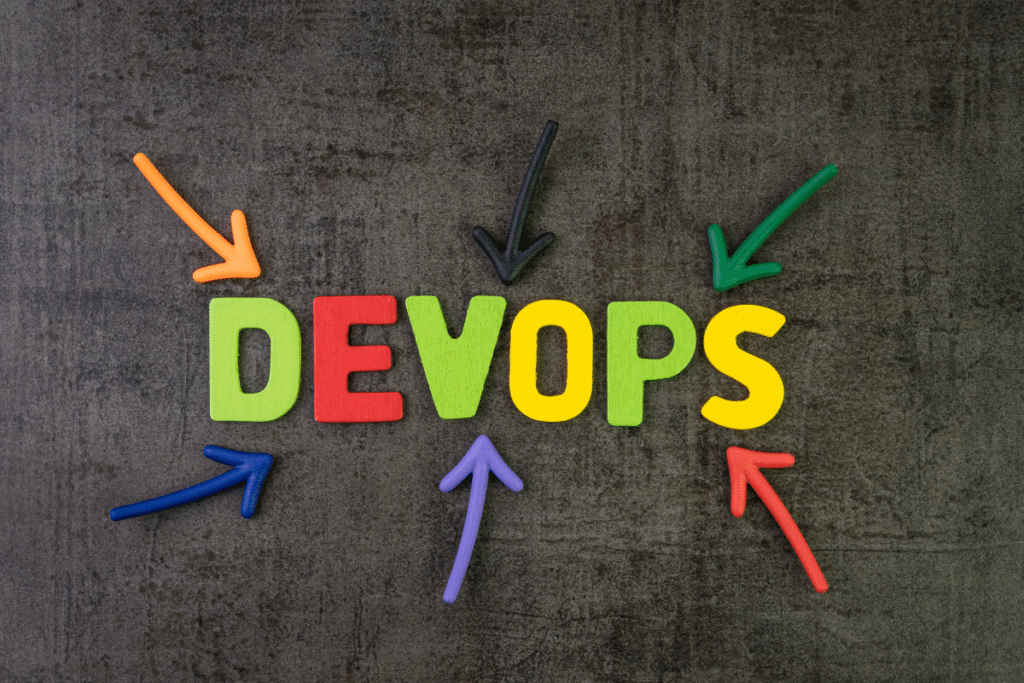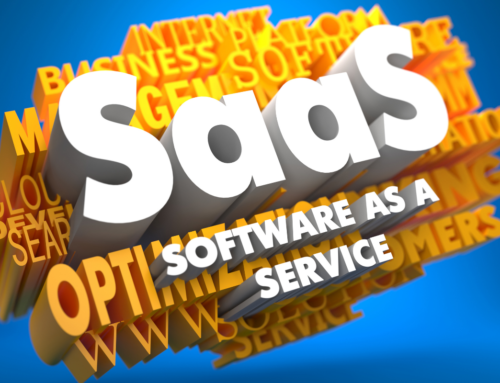
No one needs software that crashes upon update, unreliable, and slow. Software quality is one thing we all are looking forward to and should be maintained. What everyone wants are softwares that are reliable at all times, companies that support them and resolve their issues.
But how can we implement such a practice?
It is possible with the DevOps culture, which can help you increase your software development company’s speed and efficiency. It is hard to properly implement the culture, but we have to adjust according to situations and bend it for our success/benefits.
DevOps in Business Process
What is DevOps (definition)?
DevOps is a combination of tools, philosophies and practices to improve the organisation’s ability to deliver products or services more agile than a usual software development process. This enables the organisation to better serve its customers and provide them with high-quality products.
Basically, it is a cross-functional approach, where two distinct aspects of the software development process are combined. It is the combination of Development and Operations (infrastructure management) aspects of the software development process.
How it works
In the model, the development and operations team are not siloed. They are combined as one team. They would work together throughout the application/software lifecycle from development to testing to deployment and so on and develop a rare skillset not limited to a single function.
In some model, like the development and operations team are combined, the security and quality assurance team may also get combined with them. This popularly known as DevSecOps. This is actually done when the primary focus of the team is Security.
This team will automate everything using certain practices that were done manually and slowly in the past. They would use a technology stack and tools to operate and transform the software with reliability and speed. These tasks normally needed the help of other teams, which can now be done with just an engineer.
Why is it needed?
What we need the most for the software we develop are reliability and flexibility. Our software should be reliable for our customers, and it shouldn’t crash at all times, etc. With flexibility, we can dynamically make changes to our software/application according to the customer feedback and testing scenarios.
A DevOps engineer’s task is to make sure that the software performs the same on both ends, from a developers point of view and infrastructural point of view. This will give you the reliability and flexibility you were looking for. With both teams working as one, there will be more accuracy, speed in development, testing & deployment, reduced errors and much more.
It is hard to implement it in the business process, but it is not impossible. With successful synthesis, you get your results on time and with effectiveness. Get better business with better and innovative products.
Vital Elements of DevOps
These are some of the DevOps best practices and vital elements:
- Communication and Collaboration
- Continuous Delivery
- Monitoring and Logging
- Microservices
- Continuous Integration
- Infrastructure as Code
As said earlier, it is difficult to implement it all by yourself, and you can always get help from companies that offer DevOps consulting services.
Benefits of DevOps in Business Process

Source: Freepik
Some things are hard to do, but after implementing them, the reward we get is nothing but gold. Implementing the culture/model is a bit tough, and you can get help from companies, but after implementing it, your organisation would be smooth as butter. There won’t be any hierarchy, doubts, and almost everything’s automated.
The following are some of the benefits of involving the culture/model in the Business process:
-
Better Team Collaboration
With the implementation of the DevOps culture, both the development team and the operations team work as a single team. All team members will be equally responsible. They have to collaborate closely, combine workflows, share responsibility, and more. This will help both teams to emphasise values such as ownership and accountability.
The culture creates an environment for conversations, better collaboration, and integration across all team members. Also, the DevOps environment is sideswiping the old and ineffective limits of various roles. There is no more limitation on the extent of work and responsibility shared among team members.
-
High-Speed Innovative Solutions
After implementing the model, your company/business would be operating at high velocity. This will help you adapt to the changing market quickly, drive more effective business, and innovate for customers at a high pace. Microservices and Continuous delivery will let them take ownership and responsibility for a service and then release faster updates to them. The model emblems both teams to achieve these results.
By solving the issues by the development team, there is more room to make innovative solutions. By releasing effective updates, DevOps will streamline the processes, and this will make the business grow efficiently. There is more room available for innovation by solving issues.
-
Improved Reliability
Reliability is one exotic feature we demand from every product/service, be it cars, bikes or softwares. We need assurance that at the time of need, nothing will go wrong.
The model can help you increase/improve your products/services reliability. With better team collaboration, each member can provide their feedback on the product/service, which can be used to rectify the crashes/eliminate the bugs in the application.
Assure the quality of the updates and infrastructural changes, so you can deliver at a rapid pace keeping a positive experience on the customer’s end. Continues integration and Continuous delivery are practices you can use to test if the changes are working and reliable. To stay informed of the real-time performance of the application/software, use Monitoring and Logging practices.
-
Identify Error quickly
With both the development and operations team working ass one, it is easy to identify the errors and bugs on the system/application. Team members are allowed/can give their feedback and opinions from which the errors are identified easily.
-
Scalability
With DevOps, you dont have to worry about team scalability and breaking the team because of it. Tighter communication between the team members will help them to have better scalability. In the module, the team gets acquainted with the projects ASAP, unlike the traditional team framework.
-
Express Delivery
With everything moving at high velocity now, delivery of the application/software can be done with more pace. You can identify all errors and bugs with the help of your team members, and you can provide solutions and respond to your customers, which you help grow your business. For automation of software releases from build to deploy, use practices like Continuous Integration and Continuous Delivery. You can solve new crashes and bugs quickly, which can help you provide innovative solutions to your customers.
Conclusion
Hope that you have understood what benefits you can reap from implementing DevOps in your business process. We dont want a situation where the application works fine at the developer end and crashes at the customer’s end. To eliminate such instances that can affect the business growth, implement the DevOps model/culture in your business process. You can get help from companies that provide DevOps solutions.
Key Takeaways
The main takeaway from this article are the benefits you can reap from the culture. They are:
- Better Team Collaboration
- High-Speed Innovative Solutions
- Improved Reliability
- Identify Error quickly
- Scalability
- Express Delivery
Thank you for completing the article, Hope you and your loved ones are doing good.







Leave A Comment